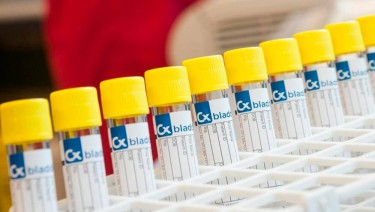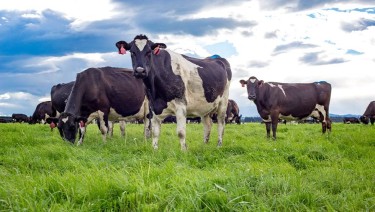Quick Takes of the Week to June 20
In case you missed it: News bites for the week.
In case you missed it: News bites for the week.
 Pacific Edge chair Chris Gallaher is seeking re-election to the board at the company’s annual meeting in early August despite signalling an intention to step down this year. He announced last September that he would stand down this year but has now delayed leaving following the cancer diagnostic company’s loss of crucial Medicare coverage for its Cxbladder products.
Pacific Edge chair Chris Gallaher is seeking re-election to the board at the company’s annual meeting in early August despite signalling an intention to step down this year. He announced last September that he would stand down this year but has now delayed leaving following the cancer diagnostic company’s loss of crucial Medicare coverage for its Cxbladder products.
“The inclusion of Cxbladder Triage in the American Urological Association’s new microhematuria guideline has allowed Pacific Edge to view the Local Coverage Determination that ended Medicare coverage of our tests through a different lens. As we move though the process to seek re-coverage, I am happy to continue as chairman to ensure we have board stability and continuity,” he said.
Pacific Edge raised $16 million from existing shareholders earlier this month, $1m more than expected, after accepting over-subscriptions. It will now target a $5m retail offer through a share purchase plan, also at 10cps, in July or August.
NZX-listed horticultural company Seeka expects profit before tax to be in the range of $33 million to $37m for the 2025 financial year, up on the previous year’s $29.7m.
Seeka noted it was an early forecast and it will keep the market updated of any significant variation. Its half-year results are due out on August 20.
The financial outlook is based on the near completion of the kiwifruit harvests in New Zealand and Australia. While Seeka handles a variety of produce, kiwifruit underpins its financial performance.
Total kiwifruit Class 1 trays in New Zealand hit 47 million trays packed, compared with 43 million the prior year. Fruit quality has been good, and improved labour availability enabled a smooth harvest, the company said. In Australia, Seeka harvested 2.25 million kilograms of kiwifruit, a similar volume to the previous year.
In March, Seeka acquired food oil company Olivado’s trading assets after placing the company into administration in January.
 Economists expect inflation to hover at the top end of the key 1-3% target band for much of the year, after official data again showed further price pressures.
Economists expect inflation to hover at the top end of the key 1-3% target band for much of the year, after official data again showed further price pressures.
Statistics NZ data today showed food prices jumped 4.4% over the year ended May. That compared with a 3.7% rise in the 12 months to April.
The latest gain was driven by higher prices for groceries, especially dairy products, as well as more expensive meat, poultry, and fish. Electricity and gas prices also rose.
ASB senior economist Mark Smith estimated annual inflation was steady at 2.6%. He said underlying price pressures were evident in a number of areas.
“The RBNZ will want to see concrete signs that pricing pressures are easing before pushing the OCR lower.”
Smith said food and energy price increases were putting further pressure on household budgets.
The Commerce Commission has cleared the way for global advertising giant Omnicom Group to acquire rival firm Interpublic in a deal that will create one of the world’s largest marketing agencies.
In a statement released this afternoon, ComCom deputy chair Anne Callinan said the regulator was satisfied that the acquisition would not substantially lessen competition in the New Zealand market.
Its investigation found that, while both firms compete to supply marketing and media buying services to advertising clients throughout the country, the merged entity would likely face strong competitive constraints from existing players in the market.
The clearance from ComCom comes as the Australian competition watchdog considers a similar application.
The ACCC’s preliminary findings are due to be released on July 24. If approved, the deal would create one of the largest advertising holding companies in the world.

Canterbury has bumped Otago off the mantle as the strongest performing region at the start of the year, according to ASB’s quarterly regional pulse. The scoreboard put Canterbury, the West Coast, and Otago in the top three, while Wellington languished once again in 15th spot and Gisborne was last at 16th. Strong commodity prices and rising food and fibre exports helped reinforce the South Island’s strength in the March quarter. In addition, Canterbury benefited from a recovery in retail, as well as housing and consumer confidence. Robust construction activity and a rebound in retail sales also helped the West Coast. Wellington ranked 15th for the third consecutive quarter, with Auckland in 10th place. Chief economist Nick Tuffley said rural New Zealand was doing a lot of the economic heavy lifting right now. He noted early signs of recovery across the country because of official cash rate cuts. However, he said, global uncertainty cast a shadow over the pace of recovery.
Legislation making it easier for foreign investment has been introduced to Parliament. The Overseas Investment (National Interest Test and Other Matters) Amendment Bill simplifies the screening process for some asset purchases and introduces a modified national interest test to enable lower-risk transactions to be assessed more quickly. Associate Finance Minister David Seymour said if a national interest risk was identified, the regulator and relevant minister could impose conditions or block the transaction. He said all investment decisions, aside from residential land, farmland and fishing quota, would have to be made within 15 days, unless the application was contrary to New Zealand’s national interest. “The updated system brings New Zealand up to speed with other advanced economies. They benefit from the flow of money and the ideas that come with overseas investment,” Seymour said.


Sign up to get the latest stories and insights delivered to your inbox – free, every day.